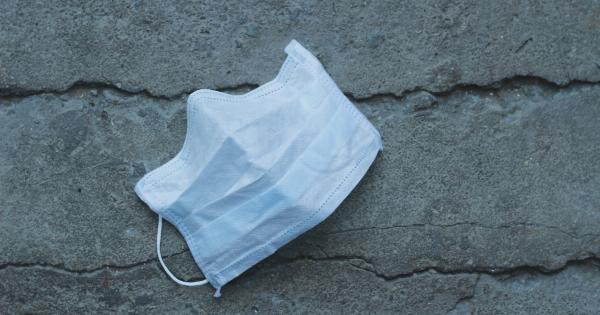Kidney stones are hard deposits of minerals and salts that form in your kidneys. They can be quite painful and can cause complications if left untreated. However, there are several ways you can reduce your risk of developing kidney stones.
In this article, we will discuss five essential tips to help you avoid kidney stones and maintain a healthy urinary system.
1. Stay Hydrated
One of the most important steps in preventing kidney stones is to stay hydrated. Drinking an adequate amount of water each day helps dilute substances in your urine that can contribute to stone formation.
Aim to drink at least 8-10 glasses of water per day, or enough to keep your urine clear or pale yellow.
In addition to water, you can also incorporate other fluids such as herbal teas and fruit juices into your daily routine.
However, it’s important to limit your intake of sugary beverages and alcohol as they can increase your risk of developing kidney stones.
2. Follow a Balanced Diet
Another key factor in preventing kidney stones is following a balanced diet. Try to maintain a diet that is low in salt and animal protein, as both can contribute to stone formation.
Instead, focus on incorporating more fruits, vegetables, and whole grains into your meals.
Moreover, it’s important to moderate your intake of foods that are high in oxalates, such as spinach, rhubarb, nuts, and chocolate. Oxalates can combine with calcium in your urine to form kidney stones.
However, this doesn’t mean you need to completely eliminate these foods from your diet. Simply be mindful of your portion sizes and consume them in moderation.
3. Increase Citrus Intake
Citrus fruits such as lemons, oranges, and grapefruits contain citrate, a compound that can help prevent kidney stone formation. Citrate helps block the formation of crystals that can develop into stones.
Additionally, citrate can also break up small stones that have already formed, making them easier to pass.
You can increase your citrus intake by adding freshly squeezed lemon or lime juice to your water, salad dressings, or other dishes. If you prefer, you can also opt for sugar-free citrus juices.
However, be cautious if you have a history of calcium oxalate stones, as citrus juices can sometimes increase the risk of stone formation in individuals prone to this type.
4. Get Enough Calcium
While it may seem counterintuitive, getting enough calcium in your diet is important for preventing kidney stones.
Calcium combines with oxalate in your intestine, reducing the amount of oxalate that gets absorbed into your bloodstream and eventually eliminated through urine. This, in turn, decreases the risk of stone formation.
It’s best to get your calcium from food sources, such as low-fat dairy products, fortified plant-based milk, and calcium-rich foods like broccoli and kale.
If you’re concerned about getting enough calcium through diet alone, talk to your healthcare provider about calcium supplements.
5. Limit Sodium Intake
Excessive sodium intake can lead to increased calcium levels in your urine, which can contribute to stone formation. Therefore, it’s important to limit your sodium intake and avoid consuming high-sodium processed foods.
Aim to consume less than 2,300 milligrams (mg) of sodium per day, or even less if you’re at a higher risk of developing kidney stones.
To reduce your sodium intake, you can try cooking at home more often and using herbs and spices to flavor your food instead of salt. Additionally, be cautious of hidden sources of sodium in condiments, canned soups, and fast food meals.
Conclusion
By following these five essential tips, you can significantly reduce your risk of developing kidney stones.
Staying hydrated, following a balanced diet, increasing your citrus intake, getting enough calcium, and limiting sodium intake are all important steps in preventing kidney stone formation. Remember to consult with your healthcare provider if you have a history of kidney stones or if you’re uncertain about any dietary changes.
Taking proactive measures and making healthy choices is key to maintaining a healthy urinary system and overall well-being.






























